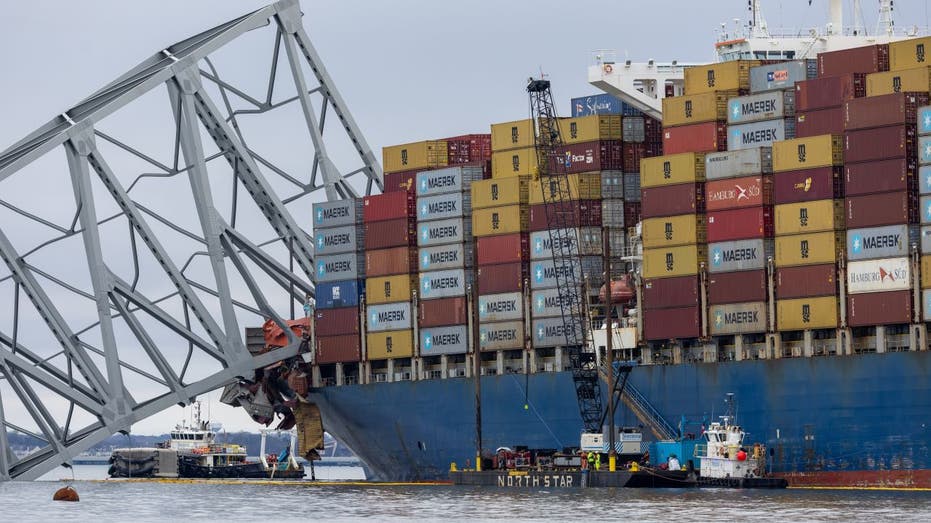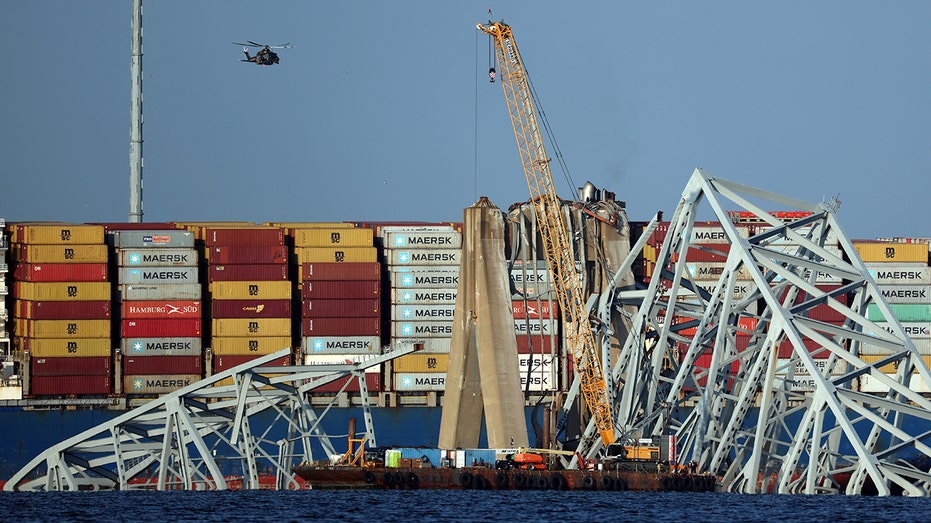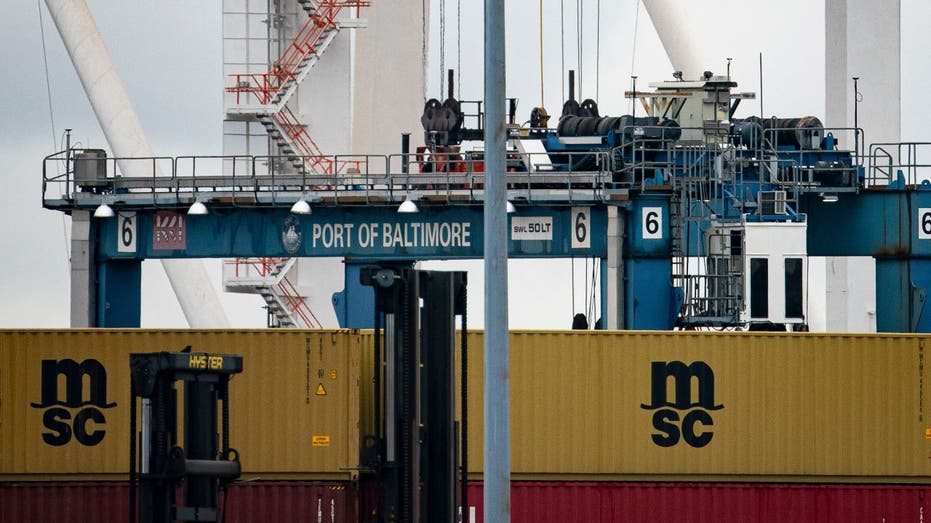City of Baltimore to provide $1M in subsidies for workers affected by bridge collapse
The city of Baltimore is planning to offer subsidies to workers affected by the port closure to keep them employed
U.S. military is working to reopen the Port of Baltimore
Fox News chief national security correspondent Jennifer Griffin has the latest on the cleanup effort following the Francis Scott Key Bridge collapse on ‘The Claman Countdown.’
Baltimore Mayor Brandon Scott on Wednesday announced the city will provide $1 million in funding to subsidize the wages of workers affected by the temporary closure of the Port of Baltimore following the collapse of the Francis Scott Key Bridge.
The Key Bridge collapsed last week after the container ship MV Dali lost power and crashed into one of its support beams, causing the bridge to fall into the Patapsco River and killing six highway construction workers on the bridge. While the main shipping channel remains blocked by the ship and bridge debris, a pair of smaller temporary channels have been opened to help with recovery efforts.
The Port of Baltimore remains closed indefinitely while work to clear the main channel continues, which will keep workers at businesses that rely on the port sidelined until it reopens. The city's plan is to use the $1 million in funds to subsidize those workers' wages to keep them from having to file for unemployment due to the work stoppage.
"I'm very grateful that the board approved my request to divert $1 million towards wage subsidies for workforces at businesses impacted by the port closure," the mayor said during a press conference Wednesday. "We'll be working with the Baltimore Civic Fund, which operated a small business wage subsidy during COVID, and this funding will closely resemble that effort."
TRAPPED VESSELS NAVIGATE PORT OF BALTIMORE AFTER BRIDGE COLLAPSE

The collapsed Francis Scott Key Bridge has shuttered the Port of Baltimore until debris and the MV Dali are cleared from the channel. (Tasos Katopodis/Getty Images / Getty Images)
"I want to be clear that this money is just an initial move," Scott added. "It is not nearly enough to cover all the businesses or the workers who will be impacted. But it is an important first step, and one that we had the ability to move quickly."
MacKenzie Garvin, director of the mayor's office of employment development, explained that the wage subsidy will subsidize a portion of the wages paid by affected businesses to their workers to keep them attached to their job.
"This fund is directly targeted for the workers and the businesses that are impacted by the Key Bridge collapse. We intend to mirror this after a subsidy that was created using ARPA funding, and this will allow businesses to be able to subsidize a portion of the wages for their workers and allow them to remain attached to their employment," she explained.

The Port of Baltimore is closed indefinitely until the main shipping channel is cleared of debris and the MV Dali is moved out from under the bridge's wreckage. (Kevin Dietsch/Getty Images / Getty Images)
Garvin added that the employees need to be residents of the city of Baltimore to be eligible for the program, and the city is coordinating with state and federal agencies about whether recipients will be able to receive other income.
"This particular subsidy is going to be paid to employers to pay wages for employees, and so we're working with our partners from the Department of Labor and the Department of Commerce to let them know about this subsidy. At this time, we don't anticipate there should be any challenges because this is going towards an individual's wage to top them off of their wage," Garvin said.

The Port of Baltimore is one of the busiest on the Eastern Seaboard, handling a significant amount of vehicle and equipment cargo as well as coal and other goods. (Al Drago/Bloomberg via Getty Images / Getty Images)
GET FOX BUSINESS ON THE GO BY CLICKING HERE
"The goal is to keep them from being separated from their employment, to keep them from going on to UI benefits. … There are discussions with U.S. DOL regarding whether or not individuals will be able to receive additional income, similar to during the pandemic times when UI was expanded, and those discussions are happening right now," she added.




















